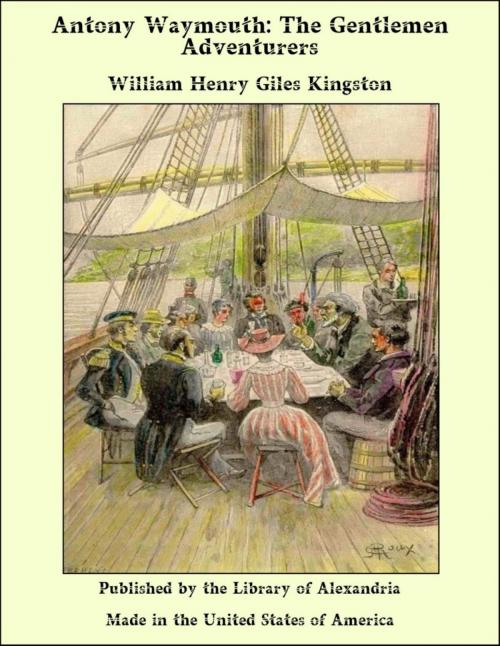Antony Waymouth: The Gentlemen Adventurers
Nonfiction, Religion & Spirituality, New Age, History, Fiction & Literature| Author: | William Henry Giles Kingston | ISBN: | 9781465596499 |
| Publisher: | Library of Alexandria | Publication: | March 8, 2015 |
| Imprint: | Language: | English |
| Author: | William Henry Giles Kingston |
| ISBN: | 9781465596499 |
| Publisher: | Library of Alexandria |
| Publication: | March 8, 2015 |
| Imprint: | |
| Language: | English |
“What! Ned Raymond ahoy! Heave to, lad. What! dost seek to give a wide berth to an old friend? That once was not your wont. Ned Raymond ahoy, I say!” The slight dark moustache on the lip of the person addressed showed that he had just reached the age of manhood. His raven hair hung in ringlets from his head. A black velvet cloak thrown over one shoulder, and a tightly-fitting dress of the same material and hue, set off his well-made, active figure. His plumed cap and the sword by his side showed that he claimed to belong to the upper rank of society. Indeed, no one looking at the refined expression of his features and his intelligent countenance could doubt that such was his right. He was walking somewhat rapidly through the narrow and irregularly-built streets of the seaport town of Plymouth, at that time one of the chief ports of departure for the numerous naval expeditions which went forth to the West and to the East in search of new lands, and of regions of gold and diamonds and other precious stones. It is worthy of remark that the people of Devonshire and Cornwall have from the earliest days shown a strong propensity for naval adventure. This arises not alone from their geographical position, but has descended to them from their progenitors, who were, there can be but little doubt, Phoenicians,—or their descendants the Carthaginians, perhaps,—sailors, merchants, and others attracted from the northern shores of Africa for the sake of the tin found in those counties. Even at the present day many of their customs and the nautical terms they employed are retained. The clotted cream of Devonshire and on the coast of Barbary is the same, as is the mode in which the people manage their farms. Caboose was the name of the temple carried by the fire-worshipping Phoenicians on the decks of their vessels; the cook’s house on board ship is now so called. Davit in Arabic is a crooked piece of wood; the same term we apply to the timbers by which boats are hoisted up to the sides of ships. However, we are now talking of more modern days, and must proceed.
“What! Ned Raymond ahoy! Heave to, lad. What! dost seek to give a wide berth to an old friend? That once was not your wont. Ned Raymond ahoy, I say!” The slight dark moustache on the lip of the person addressed showed that he had just reached the age of manhood. His raven hair hung in ringlets from his head. A black velvet cloak thrown over one shoulder, and a tightly-fitting dress of the same material and hue, set off his well-made, active figure. His plumed cap and the sword by his side showed that he claimed to belong to the upper rank of society. Indeed, no one looking at the refined expression of his features and his intelligent countenance could doubt that such was his right. He was walking somewhat rapidly through the narrow and irregularly-built streets of the seaport town of Plymouth, at that time one of the chief ports of departure for the numerous naval expeditions which went forth to the West and to the East in search of new lands, and of regions of gold and diamonds and other precious stones. It is worthy of remark that the people of Devonshire and Cornwall have from the earliest days shown a strong propensity for naval adventure. This arises not alone from their geographical position, but has descended to them from their progenitors, who were, there can be but little doubt, Phoenicians,—or their descendants the Carthaginians, perhaps,—sailors, merchants, and others attracted from the northern shores of Africa for the sake of the tin found in those counties. Even at the present day many of their customs and the nautical terms they employed are retained. The clotted cream of Devonshire and on the coast of Barbary is the same, as is the mode in which the people manage their farms. Caboose was the name of the temple carried by the fire-worshipping Phoenicians on the decks of their vessels; the cook’s house on board ship is now so called. Davit in Arabic is a crooked piece of wood; the same term we apply to the timbers by which boats are hoisted up to the sides of ships. However, we are now talking of more modern days, and must proceed.















